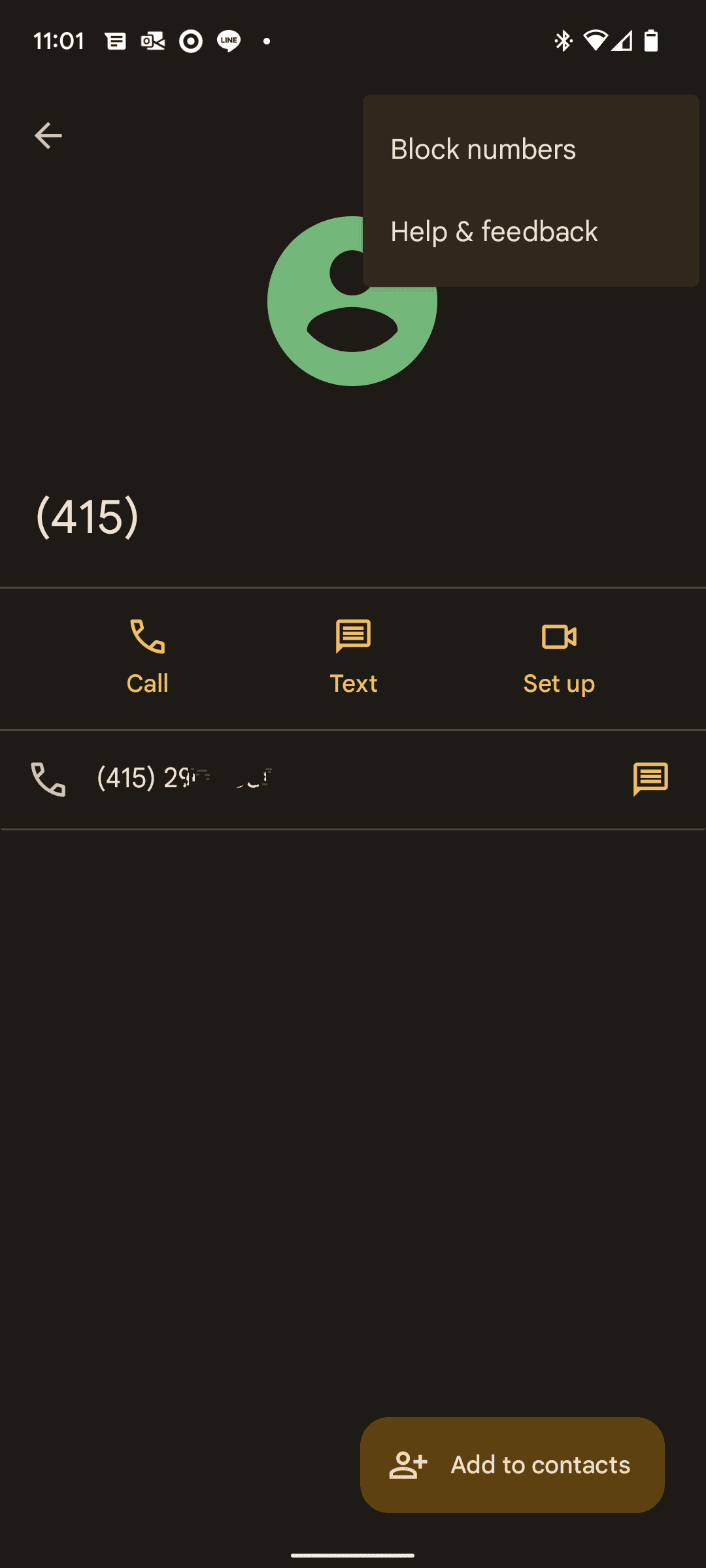30 Interview Questions for Business Developers

Your Call Data in One Place
AI call notes, real-time coaching, conversation intelligence, CRM integration, and more...
Finding the right talent for your organization is critical in today's competitive business landscape. You play an important role in driving growth and creating opportunities for your company as a business developer. It is critical to ask the right questions during interviews for business development positions in order to assess a candidate's skills, experience, and fit within your organization. In this article, we will look at 30 interview questions for business developers that will assist you in identifying the best candidates and making informed hiring decisions.
Business Developers
A business developer is an innovative individual who seeks out and pursues new business opportunities for a company. Through strategic planning and execution, they build relationships, negotiate deals, and drive revenue growth. They play an important role in expanding the customer base and maximizing business potential because they have in-depth knowledge of market dynamics and customer needs. Business developers are dynamic, results-oriented individuals who propel organizations forward by capitalizing on opportunities and cultivating mutually beneficial partnerships.

Businesses require business developers because?
- Growth Drivers: They play an important role in driving business growth by identifying and capitalizing on new opportunities, entering new markets, and acquiring new customers.
- Revenue Generation: Business developers play an important role in increasing revenue streams through strategic partnerships, successful sales initiatives, and effective deal negotiation and closing.
- Market Insights: They provide valuable market insights by conducting research, analyzing trends, and staying up-to-date on industry developments. This data assists businesses in making informed decisions and remaining competitive.
- Relationship Building: Building and maintaining relationships with clients, partners, and stakeholders is essential to their job. These strong bonds result in long-term business relationships and customer loyalty.
- Innovation and Adaptability: Business developers are frequently at the forefront of identifying new trends, technologies, and market shifts. Their adaptability and innovative thinking enable businesses to stay ahead of the competition and explore new growth opportunities.
Effective business developers have the following characteristics
- Strategic Thinkers: They are strategic thinkers who analyze market dynamics, identify opportunities, and create comprehensive plans to drive business growth.
- Strong Communication Skills: Business developers are excellent communicators, both verbally and in writing. They can effectively communicate the value proposition of products or services to clients and stakeholders.
- Relationship Builders: They have excellent interpersonal skills, establishing trust and nurturing relationships with clients, partners, and colleagues. They are adept at networking and establishing mutually beneficial relationships.
- Collaboration Skills: They excel in collaborative environments, where they can effectively collaborate with cross-functional teams and leverage diverse expertise to achieve common goals.
- Customer-Centric Mindset: Understanding customer needs and providing tailored solutions are priorities for business developers. They are committed to providing exceptional customer service and building long-term relationships.
30 Interview Questions for Business Developers:
Hiring the right business developer is critical for the growth and success of any organization. To find the best candidates, ask the right interview questions that evaluate their skills, experience, and fit within your organization. In this article, we will look at 30 interview questions for business developers, as well as the expected outcomes and the reason for asking each question.
These questions cover a wide range of topics, including background and experience, sales and business development skills, relationship building and networking, strategic thinking and problem solving, communication and presentation skills, cultural fit and teamwork, and so on. Let's look at the questions and why they're important in the hiring process.
Background and Experience
Q1. Can you tell us about your experience in business development?
Examine the candidate's overall experience and knowledge of business development.
Purpose: This question allows recruiters to assess the candidate's depth of experience as well as their ability to articulate their role and responsibilities in previous business development roles.
Q2. What industries have you worked in, and how have your experiences shaped your business development skills?
Understand how the candidate's exposure to various industries has influenced their approach to business development.
Purpose: This question allows recruiters to evaluate a candidate's flexibility toward various industry dynamics, which is essential for success in business development.
Q3. Have you worked with startups or established companies? What are the key differences in your approach in each scenario?
Determine the candidate's ability for flexibility and adaptation when working with various types of organizations.
Purpose: This question helps recruiters understand the candidate's experience working in various organizational contexts, as well as their ability to adjust their strategies and approach as needed.
Q4. Describe a successful business development project you were involved in. What was your role, and what were the outcomes?
Evaluate the candidate's ability to successfully lead business development initiatives.
Purpose: Recruiters can gain insights into the candidate's past achievements, their role in those projects, and the outcomes they delivered by asking for a specific example, providing a clearer picture of their capabilities.
Q5. Have you ever faced challenges in a business development role? How did you overcome them?
Understand the candidate's problem-solving abilities and ability to overcome challenges.
Purpose: This question allows recruiters to assess a candidate's adaptability, creativity, and ability to overcome challenges, all of which are important features for business developers who frequently deal with complex situations.

Sales and Business Development Skills
Q6. How do you identify and qualify potential leads?
Evaluate the lead generation and qualification strategies of the candidate.
Purpose: This question allows recruiters to evaluate the candidate's approach to identifying and qualifying potential leads, which is essential to building a strong pipeline and driving business growth.
Q7. Can you describe your approach to developing a sales pipeline and managing the sales process?
Examine the candidate's understanding of sales funnel management and their ability to effectively drive the sales process.
Purpose: Recruiters can assess a candidate's understanding of sales pipeline development, which includes lead nurturing, prospecting, and converting leads to customers.
Q8. What techniques do you use to negotiate and close deals?
Determine the candidate's ability to negotiate and close business deals.
Purpose: This question allows recruiters to assess a candidate's ability to effectively negotiate, reach beneficial agreements, and successfully close deals.
Q9. How do you handle objections from potential clients or customers?
Examine the candidate's ability to respond to objections and convert them into opportunities.
Purpose: Recruiters can evaluate a candidate's problem-solving and persuasive abilities, as well as their ability to handle objections and turn potential challenges into sales opportunities.
Q10. What metrics or key performance indicators (KPIs) do you track to measure your business development success?
Understand the candidate's focus on metrics as well as their ability to analyse and improve performance.
Purpose: This question allows recruiters to assess the candidate's data-driven approach to business development as well as their ability to establish and track relevant KPIs to measure success.
Relationship Building and Networking
Q11. How do you establish and maintain relationships with key stakeholders, such as clients, partners, or investors?
Evaluate the candidate's relationship-building skills and approach to creating valuable connections.
Purpose: This question allows recruiters to assess a candidate's interpersonal skills, ability to build rapport, and strategies for maintaining long-term relationships with key stakeholders.
Q12. Can you provide an example of a strategic partnership you helped develop? How did you identify the opportunity and successfully build the partnership?
Evaluate the candidate's ability to identify and take advantage of collaborative opportunities.
Purpose: Recruiters can assess a candidate's ability to identify mutually beneficial partnerships and their approach to cultivating successful collaborations by asking for a specific example.
Q13. What strategies do you use to expand your network and generate new business opportunities?
Understand the candidate's networking skills and proactive approach to creating new opportunities.
Purpose: This question allows recruiters to assess a candidate's ability to utilize their network, participate in professional networking activities, and create new business growth opportunities.
Q14. How do you handle challenging or difficult relationships with clients or partners?
Evaluate the candidate's ability to resolve conflicts and maintain positive relationships.
Purpose: This question allows recruiters to learn how the candidate handles difficult situations, resolves conflicts, and navigates difficult relationships, all of which are necessary skills for effective business development.
Q15. Have you ever successfully turned a dissatisfied client into a loyal customer? How did you achieve that?
Examine the candidate's ability to deal with customer complaints and turn negative experiences into positive ones.
Purpose: Recruiters can assess a candidate's customer relationship management skills, ability to address customer concerns, and dedication to customer satisfaction by asking this question.

Strategic Thinking and Problem-Solving
Q16. How do you identify and evaluate market opportunities for business development?
Examine the candidate's strategic thinking abilities and ability to identify profitable markets.
Purpose: Recruiters may find out about a candidate's approach to market research, competitive analysis, and ability to identify and evaluate potential business opportunities by asking this question.
Q17. Can you provide an example of a complex business challenge you faced? How did you approach it, and what were the outcomes?
Evaluate the candidate's problem-solving skills and ability to navigate complex business scenarios.
Purpose: Recruiters can assess a candidate's critical thinking skills, analytical abilities, and ability to develop effective strategies to overcome difficult situations by asking for a specific example.
Q18. What steps do you take to analyze and mitigate the risks associated with new business ventures or partnerships?
Evaluate the candidate's risk management abilities as well as their ability to make sound business decisions.
Purpose: Recruiters can use this question to assess a candidate's ability to identify potential risks, develop methods for reducing risk, and make informed decisions to reduce the risks associated with new companies or partnerships.
Q19. How do you adapt your business development strategies in response to market trends or changes in the competitive landscape?
Examine the candidate's flexibility and ability to adapt to changing market conditions.
Purpose: This question allows recruiters to assess a candidate's ability to stay current on market trends, analyze competitive landscapes, and adjust strategies to take advantage of emerging opportunities.
Q20. Can you describe a time when you had to make a tough business decision? How did you approach it, and what were the results?
Review the candidate's ability to make decisions and their willingness to take calculated risks.
Purpose: Recruiters can assess a candidate's decision-making process, ability to make difficult choices, and the outcomes of those decisions by asking for a specific example.

Communication and Presentation Skills
Q21. How do you tailor your communication style to different audiences or stakeholders?
Examine the candidate's ability to modify their communication style based on the target audience.
Purpose: This question allows recruiters to assess a candidate's communication versatility as well as their understanding of creating messages for different stakeholders for effective communication.
Q22. Can you provide an example of a presentation or pitch you delivered that successfully influenced a client or investor?
Evaluate the candidate's presentation skills and ability to persuade key decision-makers.
Purpose: Recruiters may evaluate a candidate's ability to deliver compelling presentations, articulate key messages, and effectively persuade clients or investors by asking for a specific example.
Q23. How do you effectively communicate the value proposition of a product or service to potential clients or customers?
Examine the candidate's ability to express and convey the unique value of a product or service.
Purpose: Recruiters can use this question to assess a candidate's marketing and sales communication skills, as well as their ability to highlight product or service benefits and effectively communicate value to potential customers.
Q24. What strategies do you use to build rapport and establish trust with clients or partners?
Examine the candidate's relationship skills and ability to form efficient professional relationships.
Purpose: This question allows recruiters to assess a candidate's relationship-building skills, approach to establishing trust, and ability to form positive connections with clients or partners.
Q25. Have you ever faced communication challenges with a multicultural or diverse team? How did you address them?
Evaluate the candidate's cross-cultural communication skills and ability to work effectively in a variety of situations.
Purpose: Recruiters can assess a candidate's cultural sensitivity, ability to adapt communication styles, and ability to work together with diverse team members by asking this question.
Cultural Fit and Teamwork
Q26. How do you contribute to a positive team culture and collaborate with colleagues from different departments?
Examine the candidate's teamwork and collaboration abilities.
Purpose: This question allows recruiters to gain a better understanding of the candidate's approach to teamwork, their ability to collaborate with colleagues from different departments and their contributions to encouraging a positive team culture.
Q27. Can you describe a time when you had to work on a team project with individuals who had different perspectives or work styles? How did you handle it?
Evaluate the candidate's ability to adapt and overcome obstacles in a collaborative team environment.
Purpose: Recruiters can assess a candidate's ability to work effectively with diverse team members, handle conflicting viewpoints, and achieve successful project outcomes by asking for a specific example.
Q28. How do you handle conflicts or disagreements within a team?
Determine the candidate's ability to resolve conflicts and maintain positive relationships.
Purpose: Recruiters can use this question to assess a candidate's approach to conflict resolution, ability to resolve conflicts constructively, and commitment to maintaining compatible working relationships.
Q29. Have you ever mentored or coached junior team members? How did you approach it, and what were the outcomes?
Examine the candidate's leadership and guidance abilities.
Purpose: Recruiters can assess a candidate's leadership potential, ability to guide and develop junior team members, and the impact of their mentoring/coaching efforts by asking this question.
Q30. What is your preferred work environment, and what type of organizational culture do you thrive in?
Evaluate the candidate's cultural fit within your organization as well as how they fit with the work environment you prefer.
Purpose: This question allows recruiters to assess a candidate's preferences, connection with the organizational culture, and potential for success in their current position.

Experience the future of efficient recruitment with NOOTA!
Use NOOTA's user-friendly interface to guide your interviews, allowing you to ask the right questions at the right time while maintaining a structured and productive conversation.
Automate tasks to streamline your recruitment process and increase your productivity and "Enhanced Decision-making": Using NOOTA's data and insights, you can make informed and data-driven decisions about candidates, improving the quality of your hiring decisions.
.png)
Conclusion:
Asking the right interview questions for business developers is critical in identifying top candidates with the necessary skills, experience, and cultural fit. This article's 30 interview questions cover a wide range of topics critical to business development success. Recruiters can use these questions to assess a candidate's background and experience, sales and business development skills, relationship building and networking abilities, strategic thinking and problem-solving abilities, communication and presentation skills, and fit within a team and organizational culture.
Use these questions as a guide to conduct effective interviews and make informed hiring decisions that will contribute to your organization's growth and success.
FAQs
Q1. What should recruiters focus on in the candidate's answer to the question, "Can you tell us about your experience in business development?”
Recruiters should focus on the candidate's overall experience, key accomplishments, and ability to articulate their understanding of business development. Look for information about their previous roles, responsibilities, and accomplishments.
Q2. What is the purpose of asking the question, "How do you identify and qualify potential leads?”
This question is designed to evaluate the candidate's lead generation and qualification strategies, as well as their ability to identify high-potential opportunities. Examine their lead sourcing methods, lead evaluation criteria, and approach to prioritizing leads for further engagement.
Q3. Why is it important to evaluate a candidate's strategic thinking and problem-solving abilities in a business development role?
Business developers must be able to think strategically and solve problems in order to identify opportunities, navigate challenges, and make sound decisions. Examine the candidate's ability to analyze complex situations, create strategic plans, and think critically in order to overcome obstacles.
Q4. How can recruiters assess a candidate's communication and presentation skills during an interview?
Recruiters can evaluate these skills by asking candidates for examples of successful presentations or pitches they have given, as well as their ability to effectively communicate complex ideas. Examine the speaker's clarity, confidence, and ability to engage and persuade the audience.
Q5. What should recruiters look for in a candidate's response to the question, "How do you contribute to a positive team culture?”
Recruiters should look for evidence of teamwork, collaboration, and the ability of the candidate to foster positive working relationships within a team. Examine their ability to effectively communicate and listen, support colleagues, and contribute to a harmonious work environment.
Your Call Data in One Place
AI call notes, real-time coaching, conversation intelligence, CRM integration, and more...
Related articles

Forget note-taking and
try Noota now
FAQ
In the first case, you can directly activate recording as soon as you join a videoconference.
In the second case, you can add a bot to your videoconference, which will record everything.
Noota also enables you to translate your files into over 30 languages.

.svg)
.svg)

.webp)

.png)


.svg)
